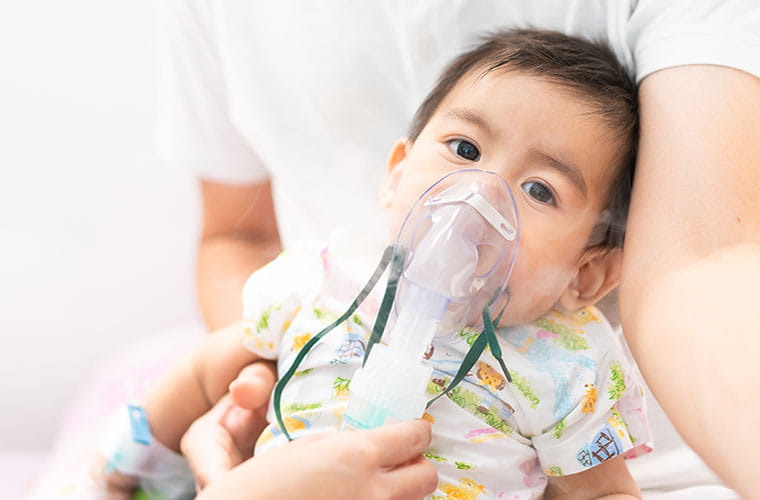RSV Season is Here: Tips for Preventing the Spread of this Common Virus

Respiratory syncytial virus (RSV) is a viral infection of the lungs and breathing passages, affecting nearly all babies by the age of 2. In adults and children, RSV usually causes mild cold-like symptoms. But in premature babies and children with compromised immune systems, it can develop into a serious respiratory illness requiring hospitalization. In fact, RSV leads to nearly 60,000 hospitalizations each year among children younger than 5 years old.
According to BayCare Kids pediatric pulmonologist Dr. John Prpich, RSV is the most common cause of lower respiratory tract infections in infants and children younger than 2, and virtually all children contract it by the age of 3.
“In most cases, RSV causes mild, cold-like symptoms, such as nasal stuffiness, cough, wheeze and sometimes an ear infection,” said Dr. Prpich. “But in premature babies and children with compromised immune systems, RSV can develop into serious respiratory conditions like pneumonia and bronchiolitis.”
Treating RSV
Fortunately, most cases of RSV are mild and require no specific treatment from doctors. With a mild case of RSV, your pediatrician may recommend that you treat your child’s symptoms at home in the same way that you would treat a bad cold.
In more serious cases, the pediatrician may prescribe medications to help your child breathe more easily or may even recommend hospitalization. If your baby is at high risk for developing RSV, such as being premature or having a heart or lung disease, your pediatrician may recommend a medication that can be injected monthly to help prevent it.
Preventing RSV
According to Dr. Prpich, RSV is very contagious. The virus can live on hands and clothing, as well as on hard surfaces like countertops and doorknobs. It can spread when a person touches an object or surface contaminated with the virus.
Just like it’s hard to keep from catching a cold, it can be very hard to keep from catching RSV. To prevent the spread of RSV, Dr. Prpich recommends the following:
Wash your hands frequently, especially before touching your infant, and ask others to do the same.
- Keep your infant away from crowds, especially young children.
- Wash your infant's toys and bedding often.
- Do not smoke near your child, and do not let others smoke near your child. Exposure to tobacco smoke increases the risk of RSV.
- Make sure countertops are clean in the kitchen and bathrooms, especially when someone in your family is sick. Discard used tissues right away.
Get Care
While most cases of RSV can be treated at home, Dr. Prpich adds that it’s important to call your pediatrician if your child is having difficulty breathing, not drinking enough fluids or experiencing worsening symptoms.
To find a pediatrician near you, visit BayCare Kids.
